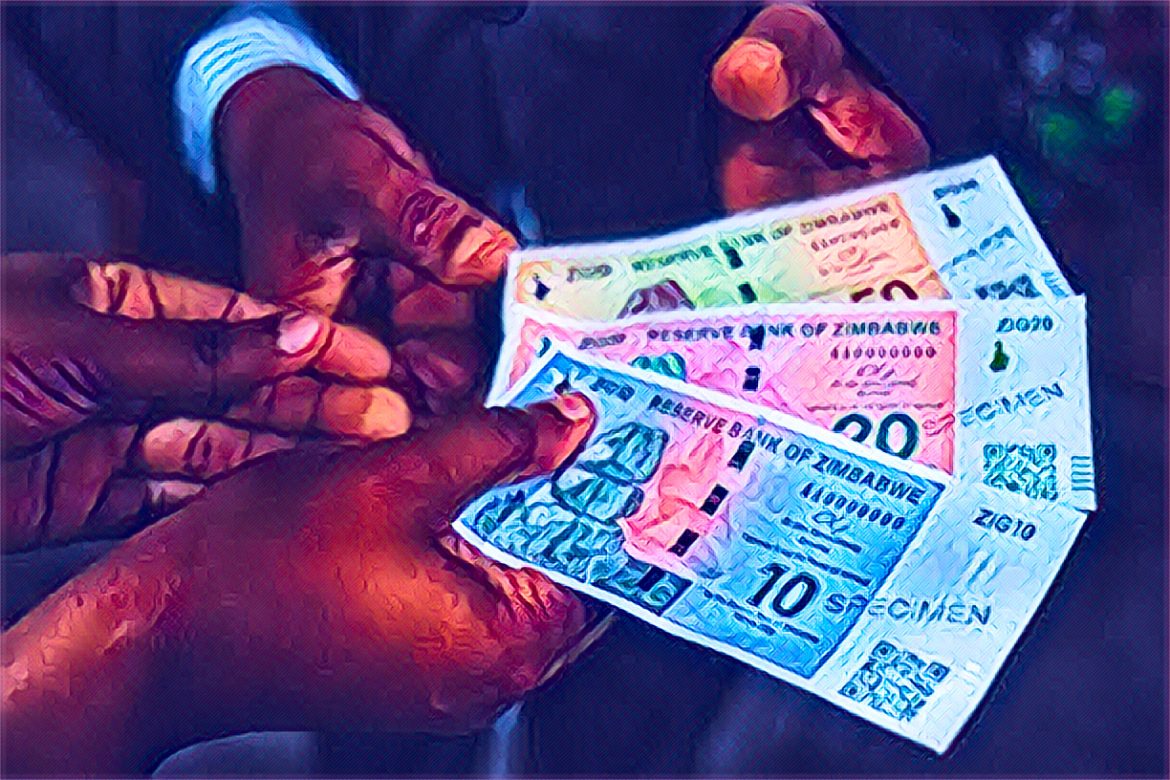KEY POINTS
- Zimbabwe’s gold-backed currency has rapidly lost value on the black market.
- Arrests are being made as citizens resist the failing currency.
- Retailers are turning to black market rates to survive the economic instability.
It has only been four months since Zimbabwe began circulating gold-backed currency known as the Zimbabwe Gold (ZWG), which is now already experiencing rapid devaluation in black markets and facing fierce backlash from the citizens as well as binding legal sanctions. However, even with the governments’ full backing, the currency has not been accepted by the public and its value is still declining.
Crackdowns and Public Resistance
A 35-year-old security guard, Ezekiel Chiradza, was arrested earlier this week for allegedly insulting President Emmerson Mnangagwa and criticizing the ZWG. Chiradza’s video, shared on WhatsApp, accused the government of mismanaging the economy, underscoring growing public discontent over the failing currency.
The ZWG, introduced in April, was initially hailed as a stable currency backed by Zimbabwe’s gold and mineral reserves. However, the currency’s value has dropped significantly on the black market, where it is currently trading at nearly double the official exchange rate. Many citizens, like Chiradza, have openly rejected the currency, leading to arrests and increased government efforts to control dissent.
Vice President Constantino Chiwenga has reiterated the government’s commitment to the ZWG, promising to implement measures to stabilize the currency. However, retailers and consumers are already feeling the effects, with many resorting to black market exchanges or foreign currencies for transactions.
Struggling Businesses and Price Disparities
Zimbabwean businesses are also facing mounting challenges due to the volatility of the ZWG. Retailers are being forced to accept the currency at the official rate, even as suppliers demand U.S. dollars or South African rand for goods. As a result, many have turned to “forward pricing,” where products are priced according to black market rates to cover the discrepancy.
For example, stores owned by Raj Modi, the deputy minister of industry and commerce, are pricing goods at the black market rate. In his stores, a bottle of Mazoe orange juice, normally priced at $5 or R100, costs ZWG114.5—significantly higher than the official exchange rate suggests.
This practice is becoming common as retailers try to protect themselves from losses, but it’s making it harder for consumers to rely on the ZWG for day-to-day purchases. Some businesses have even disabled their point-of-sale systems to force customers to pay in foreign currency, particularly for critical imports like cooking oil and fuel.
Foreign Currency Dominates Amid Failing Local Money
The ZWG’s failure to gain traction is forcing many citizens to adopt foreign currencies as their primary means of trade. Importers, who rely on foreign currency to bring goods into the country, are particularly affected, as government provisions of foreign exchange are inadequate.
Consumers like James Ncube, a retired teacher, have resorted to buying foreign currency on the black market to preserve the value of their savings. Ncube, who received his pension in ZWG, said that if he hadn’t exchanged the money for U.S. dollars, he would have lost nearly half its value. “The ZWG is not a smart move for anyone trying to keep their money,” he said.
While the government initially promised that the ZWG would be widely accepted for essential services like fuel and gas, these promises have yet to materialize. Many critical services still require hard currency, further eroding confidence in the ZWG.
Source: New Zimbabwe


